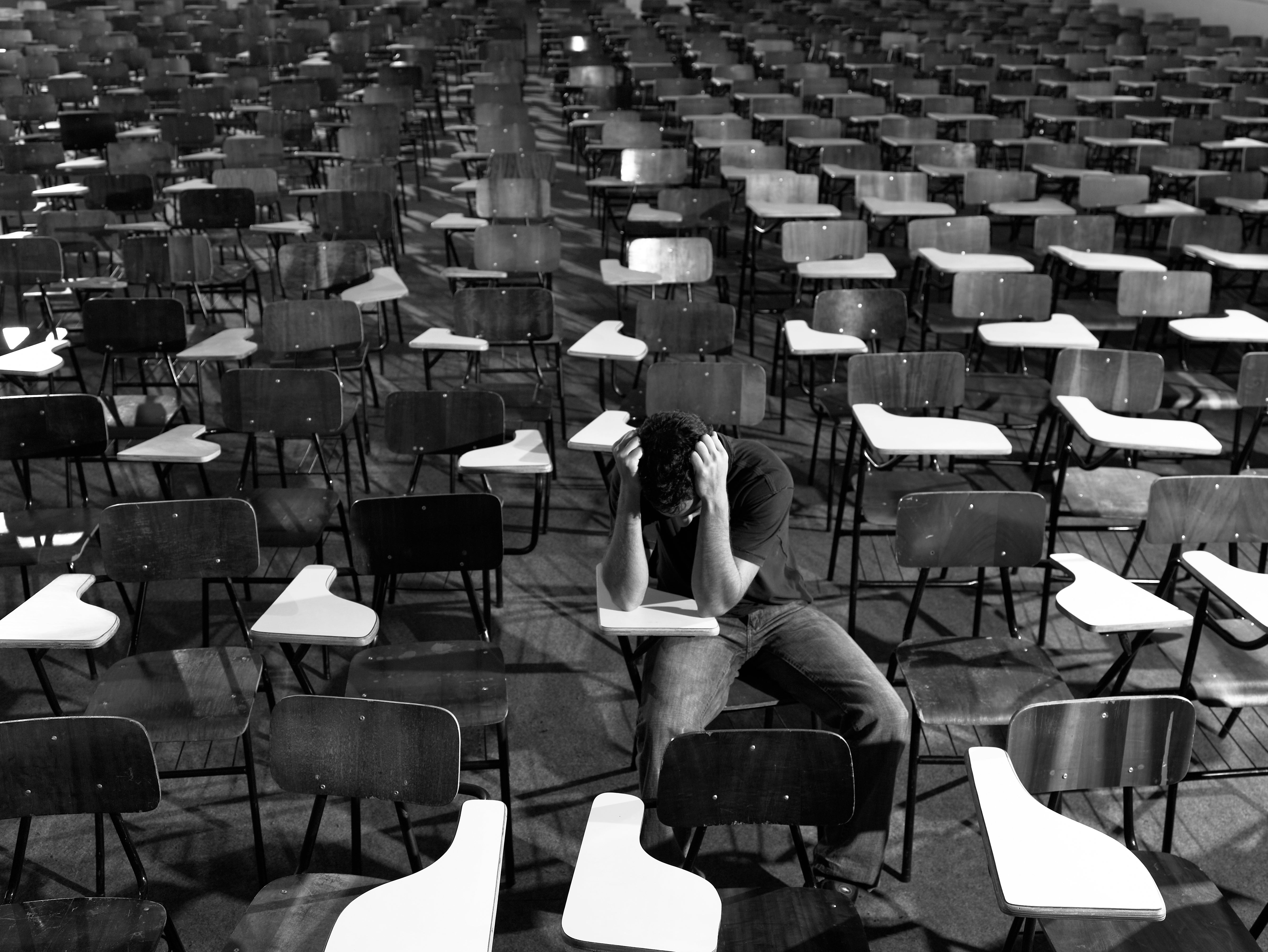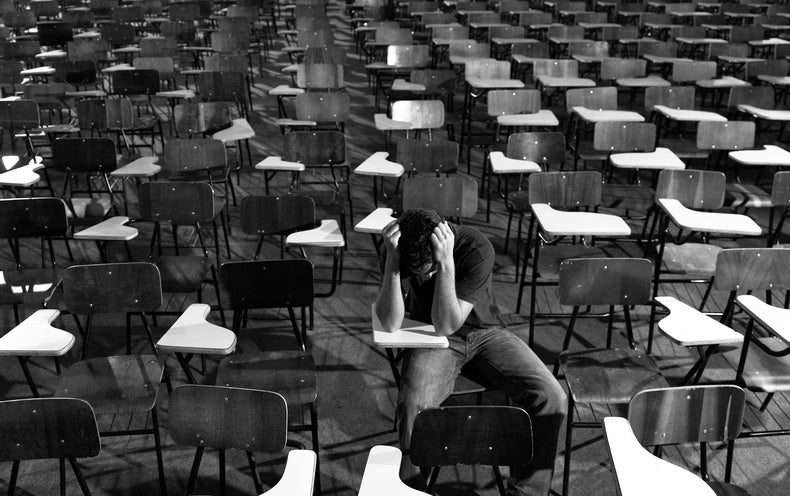
As a college scholar finding out psychology, I noticed school rooms at an area elementary college to study extra about academics’ suggestions. On one event, an 11-year-old boy referred to as Mark bought six out of 10 on a take a look at he had taken per week earlier. In response to his disappointment, the boy’s instructor stated: “It is okay, Mark, not everybody needs to be Einstein.”
The remark caught with me. In contrast to his classmates, Mark was from a decrease socio-economic background. His dad and mom have been struggling financially and have been unable to assist him together with his schoolwork. Mark shared his bed room together with his siblings, so he did not have a quiet place to check at dwelling.
I puzzled why the instructor concluded that Mark was not Einstein? This remark made Mark’s grade rely completely on his innate capability. Why did the instructor not bear in mind the exterior circumstances – reminiscent of the shortage of a spot to check – that prevented Mark from realizing his potential?
Even well-meaning academics could inadvertently ship discouraging messages to youngsters from deprived backgrounds. In latest analysis, my colleague Konstantin Sedikides, a social psychologist on the College of Southampton in England, and I draw on a number of research to look at this downside and present how these messages can assist remedy the issue. It becomes ingrained in the children’s mind. Within the course of, social and financial inequality turns into deeply engraved in each kid’s perceptions of themselves – with lasting and critical repercussions.
(Learn extra about inequality within the classroom)
Naturally, most academics need to have correct and unbiased views about their college students’ skills in order that they’ll optimally adapt their instructing. However inferring a scholar’s capability will not be straightforward. Lecturers usually face ambiguity: a scholar could carry out nicely on some assessments and poorly on others. In these circumstances, educators could also be guided by stereotypes—basic beliefs a couple of social group. For instance, a toddler’s gender, race, and ethnicity could affect instructor evaluations. Socioeconomic standing may accomplish that. Years of analysis discovered a The prevailing negative stereotype Concerning the mental skills of youngsters from poor background: No matter their precise skills, they’re typically considered as much less clever than different youngsters.
For instance, in an experiment revealed in 2021, academics within the larger metropolis of Lima, Peru, Evaluation of a nine-year-old student Who carried out inconsistently on the oral examination. The scholar answered some tough questions accurately and a few straightforward questions incorrectly. Beforehand, every instructor watched certainly one of two movies introducing that scholar. The movies depicted the kid’s neighborhood and his household as both middle-class or poor. Though the academics have been in the end evaluating the identical scholar, after they believed the nine-year-old was from a decrease socioeconomic background, they concluded that the coed carried out extra poorly, was much less clever and was much less prone to full school.
This sample has been noticed in lots of nations, together with america, whereas this socioeconomic bias can happen It intersects with prejudice against race and ethnicityIt’s clearly an extra highly effective issue shaping youngsters’s instructional expertise. A examine performed in the UK discovered that when academics consider their college students’ work, they have an inclination to Giving lower marks to those who belong to poor background, even when these college students carry out in addition to their friends. One other investigation – utilizing knowledge from Belgium, France, Germany, the Netherlands and Switzerland – discovered that academics disproportionately have a tendency to rent college students from a deprived background to lower-level career paths On the finish of elementary college, even when these college students have grades and take a look at scores just like their classmates.
These are examples of blatant bias. However most often, academics specific adverse stereotypes by means of seemingly well-intentioned messages and even reward. In a paper I revealed with a colleague earlier this yr, we He asked 106 Dutch primary school teachers To reply to hypothetical college students who bought a excessive rating on a take a look at. The kids have been described in a vignette that offered perception into their socio-economic background. We then coded the feedback made by the academics and located that whereas college students from excessive and low socioeconomic backgrounds obtained roughly the identical quantity of reward, academics lavished college students from a poor background with extra inflated approval reminiscent of “stunning! you probably did Unbelievably OK!” They did this as a result of they assumed that these college students must work more durable to realize their success.
Nevertheless, youngsters simply choose up on the underlying message. In a second experiment with 63 college students aged 10 to 13, we discovered that the youngsters have been very attuned to the academics’ language. They concluded that the coed who obtained exaggerated reward was extra diligent however much less clever than others. Thus, even well-intentioned reward can reinforce the idea that youngsters from a deprived setting are much less competent than their friends.
Over time, these distorted messages could inadvertently grow to be ingrained in youngsters’s minds. As I and others have discovered, youngsters from a decrease socioeconomic background have a tendency to take action More negative views of themselves. They view themselves as much less clever, much less in a position to develop their intelligence, much less deserving and fewer deserving – even when they’re as clever and high-achieving as others. As soon as these subjective views are established, they… remains relatively stable All through a person’s lifespan, which signifies that youngsters can carry these adverse concepts about their skills and potential into maturity.
Subjective viewpoints have an effect. Kids with adverse self-views could keep away from challenges, hand over within the face of setbacks, and carry out poorly underneath stress. Subsequently, Their academic achievement suffers. Consequently, when youngsters from a deprived background develop extra adverse self-views, they’re much less in a position to obtain their true potential. This represents an enormous loss for these youngsters and for society as a complete.
Since academics attempt to assist their college students and never hurt them, how does this occur? One purpose is that academics in lots of Western nations usually assume this manner Influenced by meritThe concept college students’ achievements are reflections of their benefit. Colleges give all college students the identical instructor, the identical desks, and the identical assessments. The result’s They are equal opportunities. With a seemingly equal place to begin, many colleges implicitly encourage the concept college students will succeed or fail fully on account of their efforts and skills – a meritocratic perfect. However in actuality, this strategy closes academics’ eyes to the circumstances college students face the skin classroom, reminiscent of whether or not they have all of the supplies, alternatives and help wanted to study and grasp the fabric.
In response, societies want to handle the entrenched points – reminiscent of the idea in meritocracy – that pervade our schooling system. To do that, we are able to Promoting social and economic segregation In faculties and Improving the social integration of children from different backgrounds. These adjustments would make unequal alternatives extra seen to youngsters, dad and mom, academics and coverage makers. When individuals study that college students like Mark are deprived due to their exterior circumstances, they grow to be extra motivated Support policies that reduce inequality.
Till then, academics could make an actual distinction of their school rooms. They’ll reshape the socio-economic background of scholars Sources of strength As an alternative of weak spot. They’ll convey to college students that what issues will not be one’s present degree of capability however moderately one’s present degree of capability How much can one improve over time?. They can assist college students embrace Failure as an opportunity to learn. As an alternative of concluding {that a} scholar will not be Einstein, academics can assist that scholar perceive why she or he obtained a disappointing grade and the right way to do higher subsequent time.
The writer’s analysis described right here was supported partly by a Jacobs Basis Analysis Fellowship, a Jacobs Basis COVID-19 Training Problem Grant, and an NWO Vidi Expertise Program Grant. These funders had no function within the writing or publication of this text.
Are you a scientist specializing in neuroscience, cognitive science or psychology? And have you ever not too long ago learn a peer-reviewed paper that you just want to write about for Thoughts Issues? Please ship strategies to Scientific American journal Thoughts Issues editor Daisy Yuhas V[email protected].
That is an opinion and evaluation article, and the opinions expressed by the writer or authors aren’t essentially their very ownAmerican Scientific.
(tags for translation) discrimination
